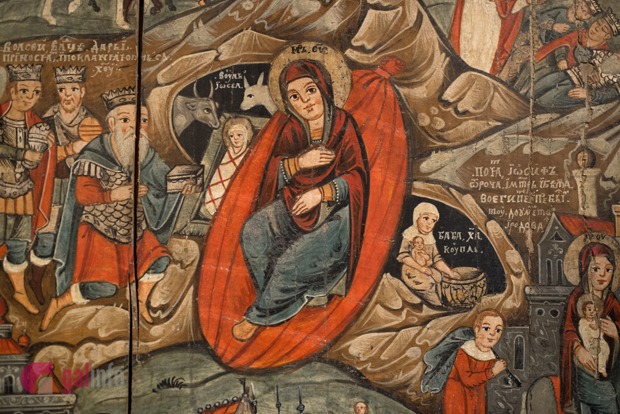The Holy Gospel according to Mark (6: 14-30): At that time, king Herod heard of Jesus (for his name was spread abroad) and he said, that John the Baptist was risen from the dead, and therefore mighty works do shew forth themselves in him. Others said, that it is Elijah. And others said, that it is a prophet, or as one of the prophets. But when Herod heard thereof, he said: “It is John, whom I beheaded: he is risen from the dead.” For Herod himself had sent forth and laid hold upon John, and bound him in prison for Herodias’ sake, his brother Philip’s wife: for he had married her. For John had said unto Herod: “It is not lawful for thee to have thy brother’s wife.” Therefore Herodias had a quarrel against him, and would have killed him; but she could not: For Herod feared John, knowing that he was a just man and an holy, and observed him; and when he heard him, he did many things, and heard him gladly. And when a convenient day was come, that Herod on his birthday made a supper to his lords, high captains, and chief estates of Galilee; and when the daughter of the said Herodias came in, and danced, and pleased Herod and those who sat with him, the king said unto the damsel: “Ask of me whatsoever thou wilt, and I will give it thee.” And he swore unto her: “Whatsoever thou shalt ask of me, I will give it thee, unto the half of my kingdom.” And she went forth, and said unto her mother: “What shall I ask?” And she said: “The head of John the Baptist.” And she came in straightway with haste unto the king, and asked, saying: “I will that thou give me by and by in a charger the head of John the Baptist.” And the king was exceeding sorry; yet for his oath’s sake, and for the sake of those who sat with him, he would not reject her. And immediately the king sent an executioner, and commanded his head to be brought: and he went and beheaded him in the prison, And brought his head in a charger, and gave it to the damsel: and the damsel gave it to her mother. And when his disciples heard of it, they came and took up his corpse, and laid it in a tomb. And the apostles gathered themselves together unto Jesus, and told Him all things, both what they had done, and what they had taught.

In the Name of the Father, and of the Son, and of the Holy Spirit.
Dear brothers and sisters, greetings as we celebrate the feast of the Holy Prophet, Forerunner and Baptist, John. S prazdnikom!
This feast of the beheading of the Forerunner is a reminder that truth and righteousness have a cost, and that we – as those who know and worship Truth as a Person, in our Lord and Saviour – must have the courage of the Forerunner, without worrying and stopping to calculate the cost of being true to our Faith and opposing the falsehood of rulers and powers.
We must live truth, speak truth, act in truth, and – as the people of God – preach truth, and oppose falsehood as a poison which is soul-destroying, deadly and the way to perdition.
Just as St John opposed the tyrannical Herod – a false king, unworthy of the throne of Israel – so, across the world, people of Faith face tyranny from above, with laws that trample on rights of religious expression; with liberal weaponised accusations of extremism used to quash and attack freedom to protest and for basic association; with constant surveillance following us and tracking the movements our everyday lives; in a world in which saying there are only two genders in heresy, in which using the wrong pronoun can threaten jobs and careers, and where language-police constantly survey our vocabulary for offences against the decency of the new dystopia; a world in which parental rights over children are denied by governments, who destroy the lives of the young as woke agendas not only allow, but even encourage confused minors to surgically, physically and mentally destroy themselves when identity is a source of confusion and doubt; a world in which political candidates feel fine in advocating abortion up to birth, and in which living and viable aborted children are left to die on surgical trollies.
The most chilling things is that we are surrounded by people who willingly and energetically dance to the crazed and frantic tune of this Herodian dystopia, in which governments compete not only for the crown, but to show their “worthiness” and conviction in advancing the brave new world.
A great curse was that Covid saw the leaven of Herod infect not only government and society, but sadly even the Church, as individuals danced so frantically to the frenzied rhythm of Herod’s tune, that they trampled the Holy Things of God in doing so.
In Greece, people happily reported priests who continued to commune the faithful, and bishops disciplined and suspended them for their Faith and Orthodoxy.
Closer to home, science-worshipping, but Christ-denying theoretically Orthodox totally abandoned the Holy Mysteries, and across Britain clergy who feared germs and Herod more than God and who showed more “faith” in science than in the Body and Blood of the Conqueror of Death, and who later appeared with the chalice like angels-of-death in black masks, ironically to impart the Bread of Life to the faithful.
The faithful were not permitted to venerate icons, which could so easily have been wiped, and a new iconoclasm was wedded to the eucharistic heresy of those who preached the Body and Blood of the Saviour as a source of infection and death, and not the Bread of Life.
After this, as though it was not bad enough, clergy beating the tambour and piping the melody for Salome’s dance, refused the unvaccinated entrance to Liturgy and access to the Holy Mysteries.
How the tyrannical spirit of Herod fills the world and even infects the Church, yet as children of the Resurrection, we face all of this darkness with courage, fulfilling the witness of the Holy Forerunner.
Like the Baptist, each of us must be willing to individually raise the prophetic voice, to oppose the madness and iniquity of the world; each of us needs to live the apostolic life, in witnessing for the Truth and spreading the good news of the freedom the Gospel brings, in contrast to the slavery to Herod; each of us needs to struggle to be earthly angels and heavenly people, seeking to build the Kingdom of God, not of Herod.
And, when we do this TOGETHER, no longer as limited, weak and feeble individuals, but AS THE CHURCH, we will do so not with the voice of the Forerunner, but with the voice of the Saviour Himself, Who has made us partakers of His Resurrection.
As the Church, like the Forerunner, we must speak for the Saviour, uniting in denouncing the iniquities and falsehood of the world, and decrying the tyranny of the latter-day Herods.
But for this we require unity: unity in seeking righteousness and holiness, unity in prayer, unity in the Holy Mysteries, unity in upholding and defending Sacred Tradition, unity in resisting assaults against the Faith and the Church, unity in preserving the purity of Orthodox teaching: united to proclaim the Way, the Truth and the life.
So, let us fast together, pray together, keep the feasts together, celebrate and share the Holy Mysteries together, rejoice in pilgrimage together, cooking, eating and having fellowship together, so that TOGETHER, we may traverse the spiritual wastes of the world and be like John, as angels-of-the-desert making straight the way of the Lord, proclaiming the Lamb of God, and knowing that He will come again in glory to lead the faithful into the Kingdom of Heaven, when the kingdoms of the countless modern Herods shall perish and cease.
In unity of Faith, united in Christ, united in His theandric Body – the Church – let us pray for and seek John’s boldness, neither compromising nor even counting the cost of TRUTH.
Amen!

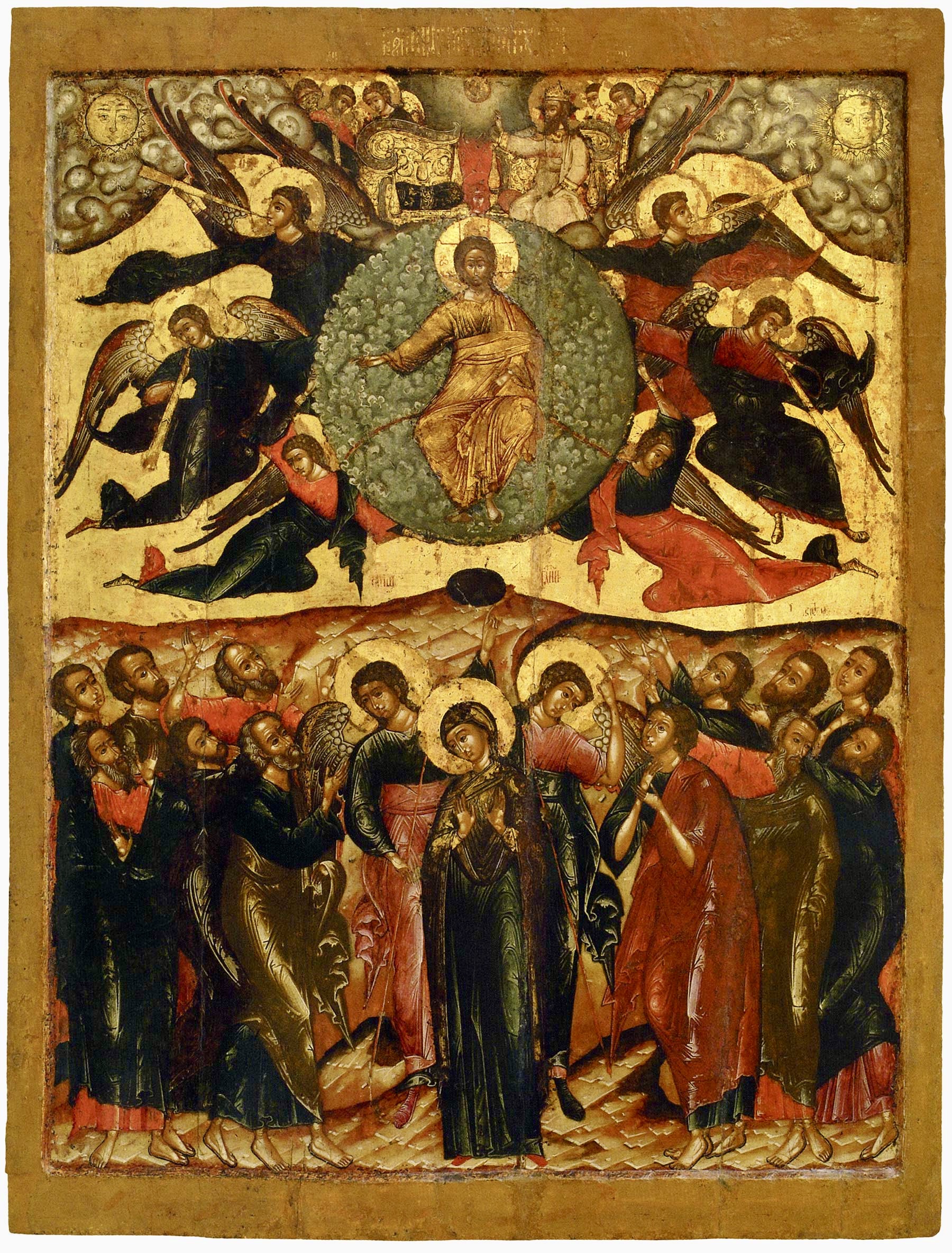 In the Name of the Father and of the Son, and of the Holy Spirit.
In the Name of the Father and of the Son, and of the Holy Spirit.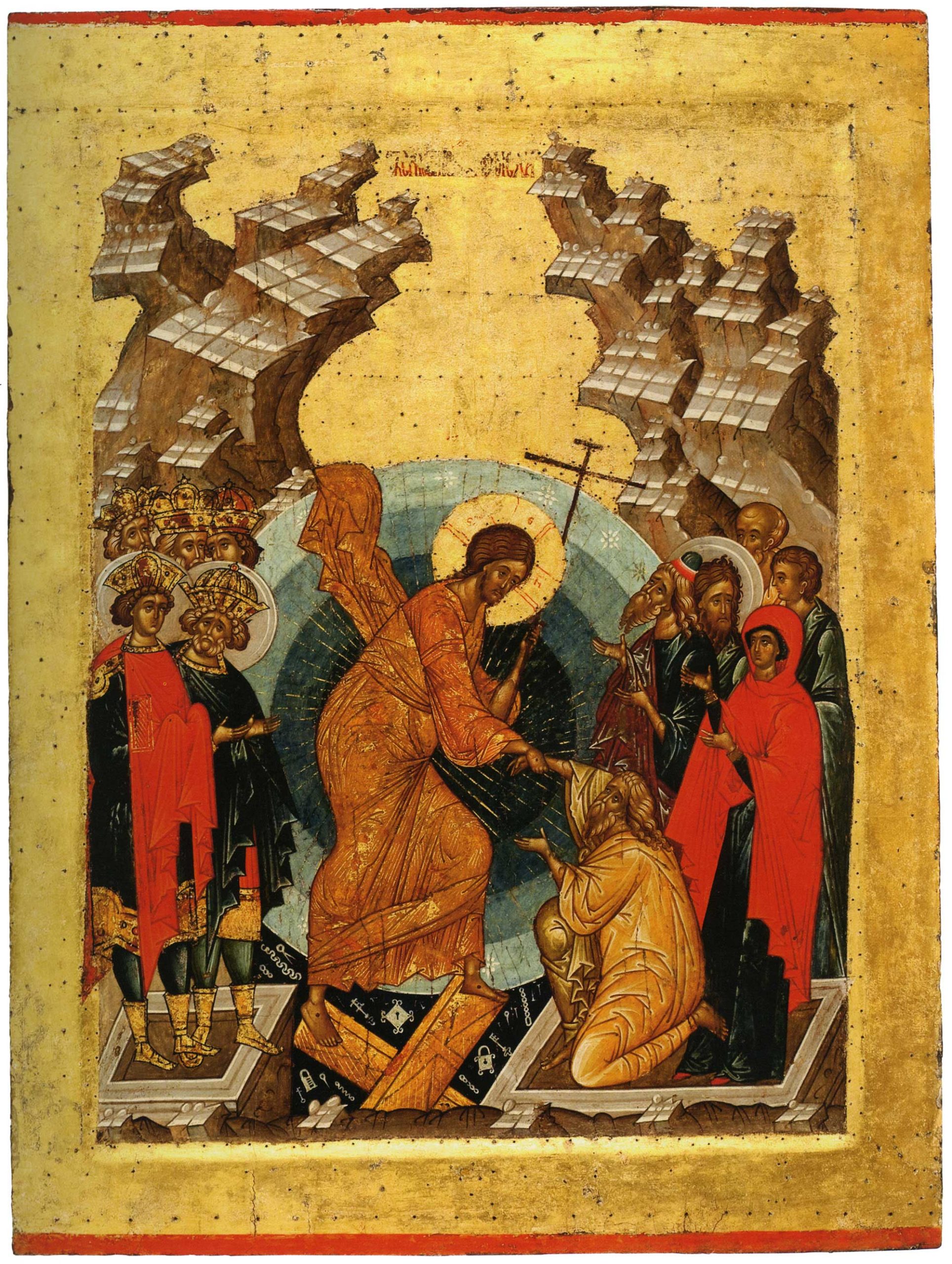 Dear brothers and sisters, Christ is Risen! Христосъ воскресе! Hristos a înviat! Χριστός ἀνέστη!
Dear brothers and sisters, Christ is Risen! Христосъ воскресе! Hristos a înviat! Χριστός ἀνέστη! The little icon, missed by many people, at the back of the Anglican shrine-church in Walsingham, captures the joy of the encounter, which we know to also have been the meeting of the Saviour and the Forerunner within their mothers’ wombs, with the Forerunner leaping in recognition of his Saviour and Creator’s Presence.
The little icon, missed by many people, at the back of the Anglican shrine-church in Walsingham, captures the joy of the encounter, which we know to also have been the meeting of the Saviour and the Forerunner within their mothers’ wombs, with the Forerunner leaping in recognition of his Saviour and Creator’s Presence.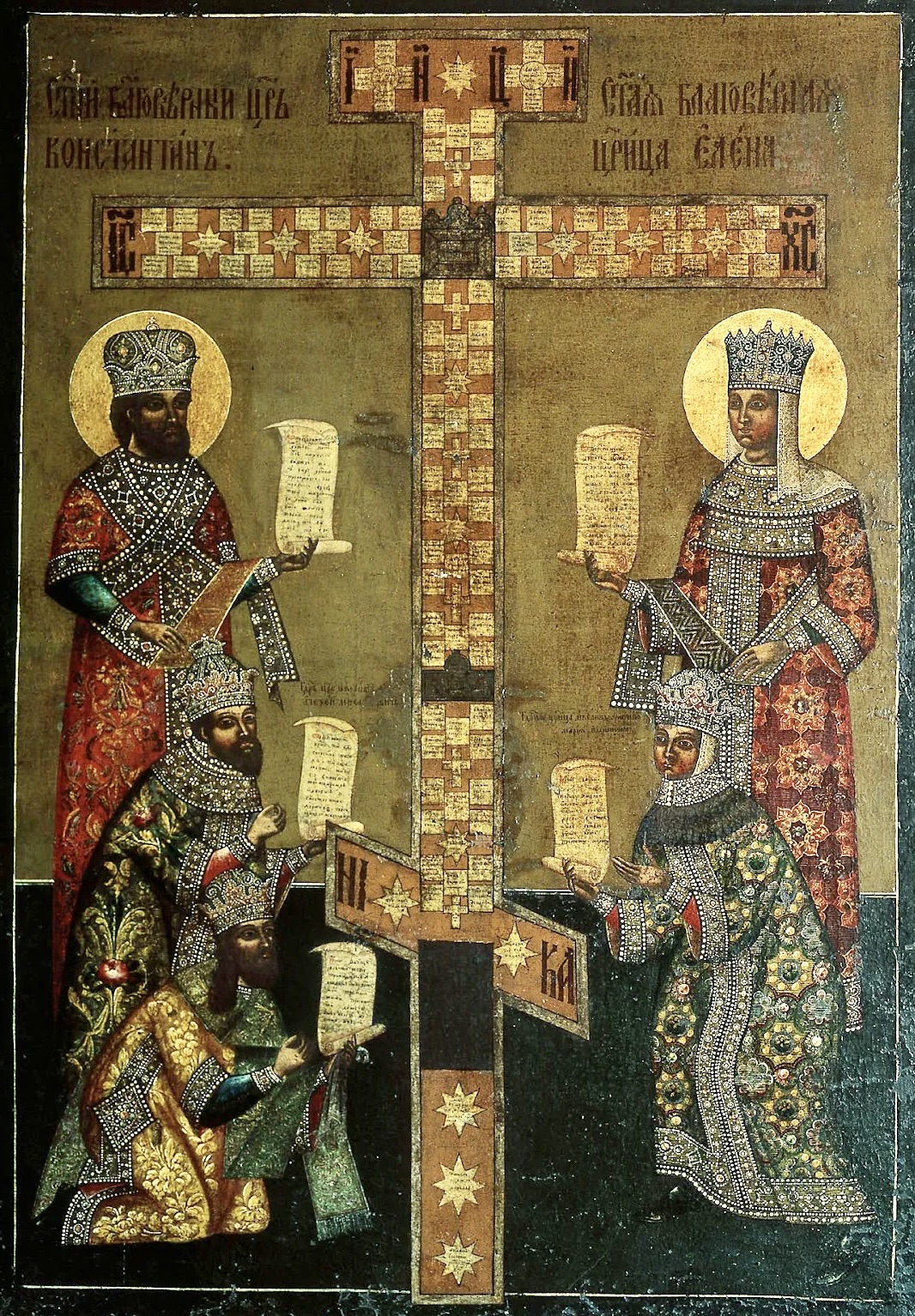

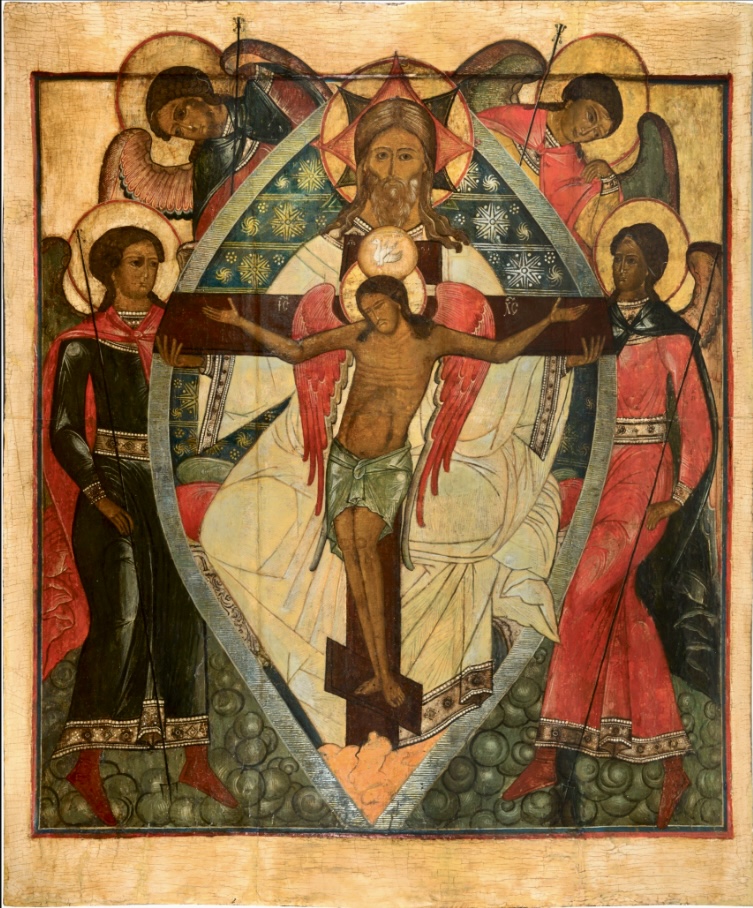 There is an old Slavic icon, (of western inspiration, and not without controversy), the “Pre-Eternal Council – Prevechny Sovyet” which reminds us that even as Adam and Eve fell, even as the effects of their disobedience were pronounced, and even as they were banished, God as all-knowing, all-loving and all-powerful ALREADY had the remedy – already had the answer, and already looked forward to the unfolding of the mystery of salvation in the fullness of time.
There is an old Slavic icon, (of western inspiration, and not without controversy), the “Pre-Eternal Council – Prevechny Sovyet” which reminds us that even as Adam and Eve fell, even as the effects of their disobedience were pronounced, and even as they were banished, God as all-knowing, all-loving and all-powerful ALREADY had the remedy – already had the answer, and already looked forward to the unfolding of the mystery of salvation in the fullness of time.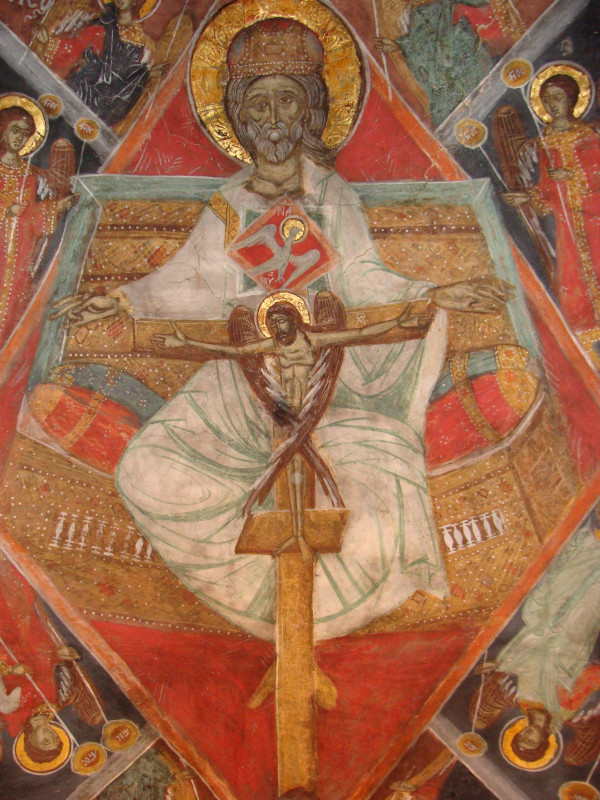
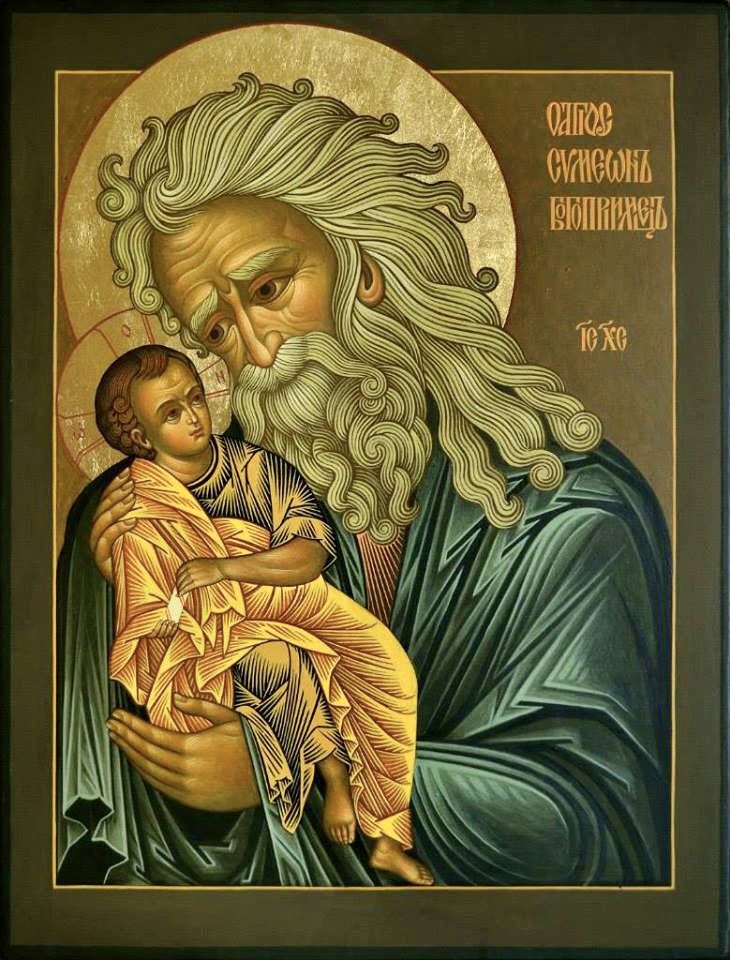
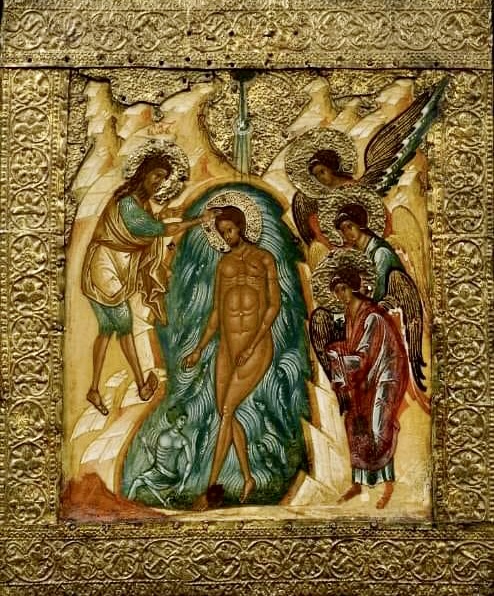
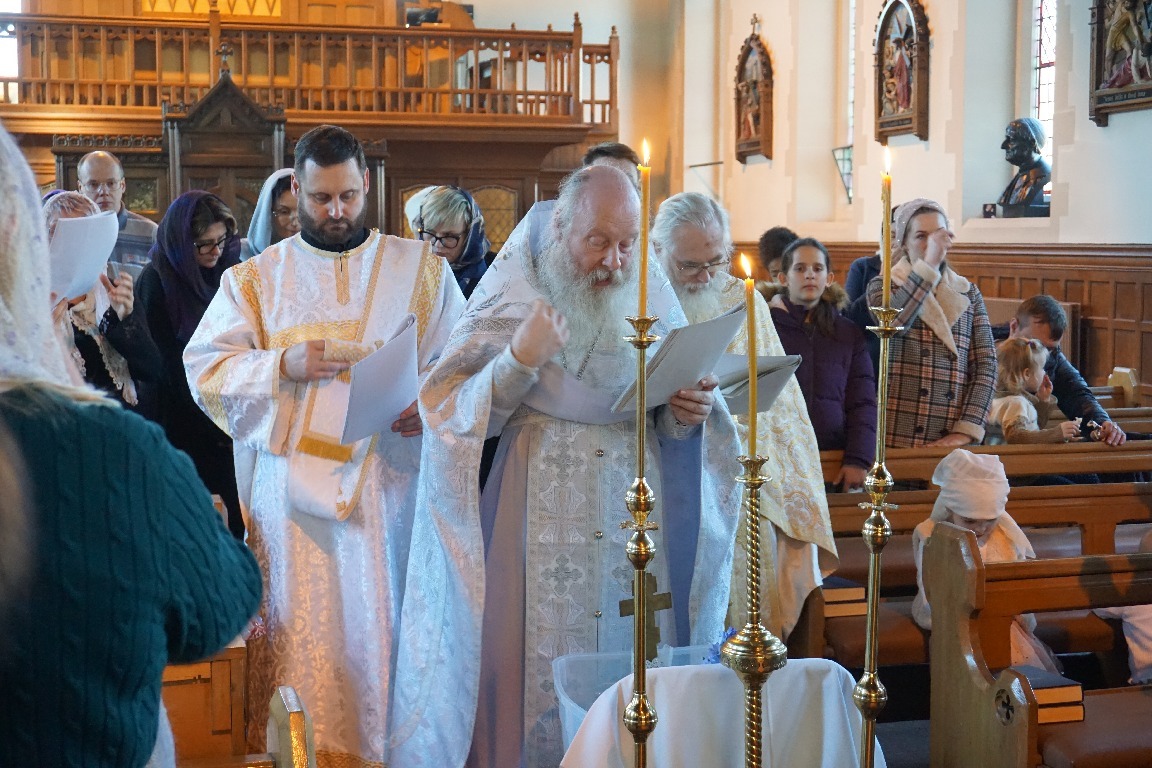
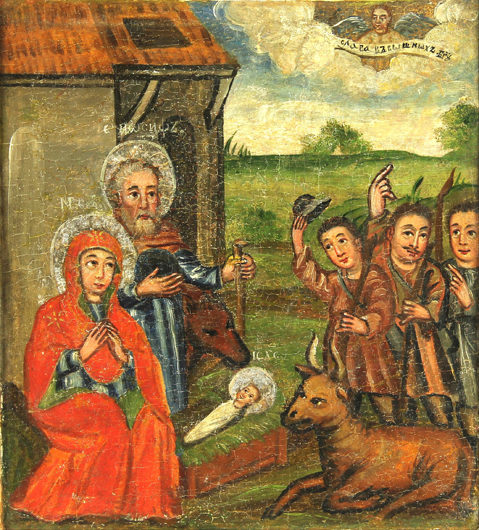 “Glory to God in the highest, and on earth peace to men on whom His favour rests!”
“Glory to God in the highest, and on earth peace to men on whom His favour rests!”
